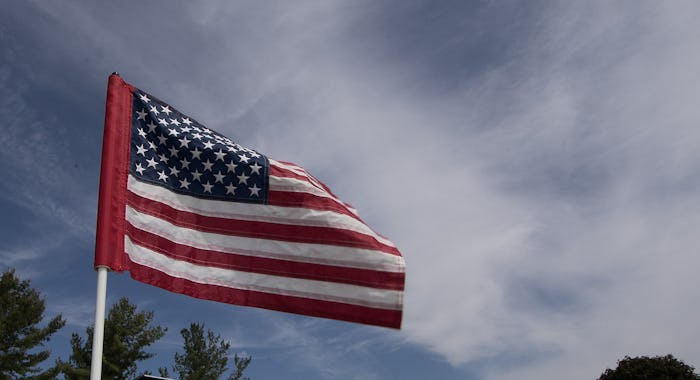
Here's Why We Celebrate Presidents Day
A much-needed three day weekend is headed your way, with schools and work taking pause to observe a national holiday. Surely, a day to rest is totally appreciated, regardless of the reason, but why do we celebrate Presidents Day? With a multi-century long legacy, the occasion's bound to have an in-depth history.
Understanding the reasons behind Presidents Day starts with President George Washington's death in 1799. In remembrance of the beloved leader, his birthday became a widely celebrated holiday, though it was in an unofficial capacity. The occasion was first made official in Washington, D.C., by the late 1870s and then spread as a nationwide observance by 1885.
Officially referred to as "Washington’s Birthday" by the U.S. government, the holiday was fully established as such on Feb. 22, 1885. Things settled down from there, that is, until the 20th century, which sought to change the holiday's date; Presidents Day is on a Monday because of the Uniform Monday Holiday Law — an effort to create more long weekends. The measure took effect in 1971.
In making this change, the new piece of legislation also combined Washington's day of celebration with that of President Abraham Lincoln's, another February baby. Here's where it gets a bit confusing, as the holiday was still technically called "Washington's Birthday," despite it being a combo for Lincoln and Washinton alike. The fact that the holiday didn't occur on either Lincoln's or Washington's birthdays is what paved the way for a more appropriate, "Presidents Day" label to take root. This general, somewhat informal switch occurred when consumer-focused marketing rose up around the holiday. Just think: How many "Presidents Day Sales" have you seen on recent commercials?
So, if we're getting totally technical, Monday marks "Washington's Birthday," not Presidents Day; Presidents Day doesn't officially exist. Regardless, the new hybrid of a holiday "is now popularly seen as a day to recognize the lives and achievements of all of America’s chief executives," History's website explains.
What started as a specific birthday celebration for our nation's first founding father turned into a two-person event. Due to various legislations meant to maximize the utility of the day, the reasoning got a bit murky for citizens. Add consumer culture into the mix, and you've got the "Presidents Day" misnomer that was never meant to be. Understandably, many have dedicated the day to all presidents, not just the two original ones, so that nobody's left out. Regardless as to how the holiday as changed over time, however, Washington and Lincoln definitely still remain the stars.